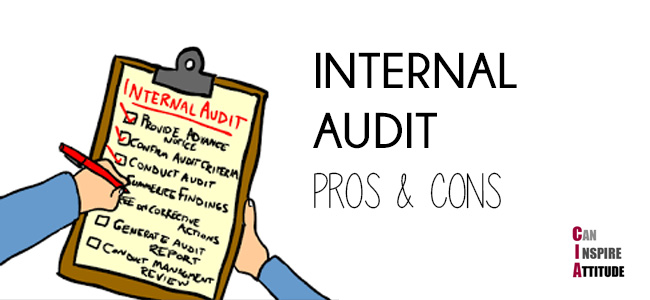Is Internal Auditor a Stressful Job?
Being an internal auditor is a challenging and demanding profession. With the responsibility of assessing and improving an organization’s internal controls, risk management processes, and financial reporting, it’s natural to wonder whether this role comes with a high level of stress. In this article, we will explore the factors that contribute to the potential stress associated with being an internal auditor and provide insights on how to manage and alleviate it. Is internal auditor a stressful job?
The Nature of Internal Auditing
Internal auditors play a critical role in evaluating an organization’s operations, processes, and systems. They are responsible for identifying risks, analyzing controls, and providing recommendations to enhance efficiency and effectiveness. The work of an internal auditor involves examining financial statements, conducting compliance audits, and assessing operational procedures to ensure compliance with policies, laws, and regulations.
Given the importance of their work, internal auditors often face high expectations from management, regulators, and stakeholders. The need to deliver accurate and unbiased assessments within tight deadlines can create pressure and contribute to stress levels.
Factors Contributing to Stress
1. Workload and Time Constraints
Internal auditors often have to juggle multiple assignments simultaneously, which can lead to a heavy workload. Balancing numerous audit projects, meeting deadlines, and managing time effectively can be challenging. The constant pressure to complete audits within specified timeframes while maintaining quality standards can create stress.

Is internal auditor a stressful job?
2. Organizational Expectations
Organizations rely on internal auditors to identify weaknesses and recommend improvements. However, these expectations can be demanding and sometimes unrealistic. Internal auditors may face pressure to deliver results quickly, especially when the organization is undergoing significant changes or facing financial difficulties.
3. Dealing with Conflict
Internal auditors often find themselves in situations where they have to challenge existing practices and provide constructive criticism. This can lead to conflicts with management or other employees who may be resistant to change. Navigating these conflicts while maintaining professionalism and objectivity can be stressful.
4. Regulatory and Compliance Pressures
The ever-evolving landscape of regulations and compliance requirements adds another layer of stress for internal auditors. Staying updated with the latest laws and regulations and ensuring organizational compliance can be a daunting task. Failure to comply with these regulations can have severe consequences, both for the organization and the auditor.
Managing Stress as an Internal Auditor
While the internal auditing profession can be stressful, there are strategies that can help manage and alleviate stress:
1. Effective Time Management
Prioritize tasks, set realistic deadlines, and allocate time wisely. Break down projects into smaller, manageable tasks and create a schedule to ensure deadlines are met without compromising quality. Effective time management can help reduce stress levels and increase productivity.
2. Open Communication and Collaboration
Develop strong working relationships with colleagues and management. Effective communication and collaboration can help manage conflicts, facilitate understanding, and foster a supportive work environment. Building a network of support can alleviate stress by sharing experiences and seeking advice from peers.
3. Continuous Professional Development
Invest in ongoing professional development to stay up-to-date with industry trends, regulations, and best practices. Regular training and certifications can enhance skills and knowledge, providing more confidence in performing audit tasks and reducing stress associated with unfamiliar situations.

4. Stress Management Techniques
Implement stress management techniques to help cope with the pressures of the job. This can include practicing mindfulness and relaxation techniques, such as deep breathing exercises or meditation. Engaging in physical activities, maintaining a healthy lifestyle, and finding hobbies or activities outside of work can also contribute to stress reduction. For ashfield internal auditor click here.
5. Seek Support and Mentorship
Seeking support from mentors or more experienced colleagues can provide guidance and reassurance in challenging situations. Having someone to discuss work-related issues and concerns can offer a fresh perspective and alleviate stress. Additionally, joining professional organizations or networking groups can provide opportunities for mentorship and professional support.
6. Maintain a Work-Life Balance
Strive to maintain a healthy work-life balance by setting boundaries between work and personal life. Dedicate time for activities that help relax and recharge, such as spending quality time with family and friends, pursuing hobbies, or engaging in self-care practices. Creating a healthy balance between work and personal life can prevent burnout and improve overall well-being.
The Rewards of Being an Internal Auditor
Despite the potential stress, being an internal auditor also offers numerous rewards:
1. Professional Growth and Development
Working as an internal auditor provides opportunities for continuous learning and growth. As auditors gain experience in various industries and organizations, they develop a wide range of skills, including risk assessment, problem-solving, and critical thinking. These skills are transferable and valuable for career advancement.
2. Contributing to Organizational Success
Internal auditors play a crucial role in improving organizational processes and controls. By identifying weaknesses and recommending enhancements, they contribute to the overall success and sustainability of the organization. This sense of accomplishment can be highly rewarding.
3. Job Security and Market Demand
Internal auditors are in high demand across industries due to increased regulatory requirements and the focus on risk management. This demand ensures job security and provides opportunities for career advancement and competitive compensation.
4. Exposure to Various Business Functions
Internal auditors have the opportunity to gain exposure to different business functions and departments within an organization. This exposure broadens their knowledge and understanding of various operational areas, enhancing their overall business acumen.
Conclusion
While being an internal auditor can be stressful due to factors such as workload, organizational expectations, conflict resolution, and regulatory pressures, there are ways to manage and alleviate stress. By implementing effective time management, maintaining open communication and collaboration, investing in continuous professional development, practicing stress management techniques, seeking support and mentorship, and maintaining a work-life balance, internal auditors can navigate the challenges and enjoy the rewards of their profession. Remember, managing stress is crucial for overall well-being and long-term success in any profession, including internal auditing.

